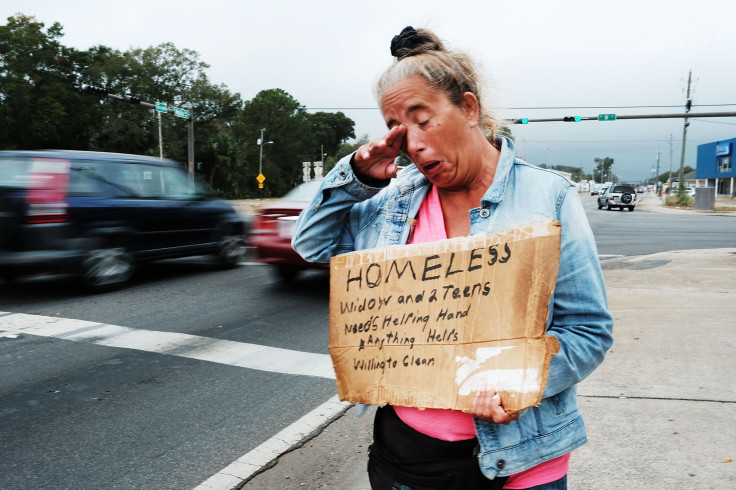What Does Poverty Look Like? Poor Children More Likely To Have Psychological Damage As Adults, New Study Finds

Growing up in poverty not only causes adverse physical effects but negative mental effects, as well. A study published Tuesday by researchers at Cornell University found that childhood poverty caused significant psychological damage in adulthood.
“People walk around with this idea in their head that if you work hard, play by the rules, you can get ahead,” said Gary Evans, the study’s lead author and professor of environmental and developmental psychology at Cornell. “And that’s just a myth. It’s not true.”
Evans tracked 341 subjects for 15 years and tested them at intervals of ages 9, 13, 17 and 24. The participants took various tests to measure their ability to memorize and recall. Those who grew up in poverty had a significantly decreased ability to recall things than those who did not.
“What this means is, if you’re born poor, you’re on a trajectory to have more of these kinds of psychological problems,” said Evans. He also noted that the cycle of poverty becomes difficult to break after a childhood spent in a poor family, as there is a 40 percent chance that a son’s income will be the same as his father’s.
Evans also administered a “helplessness” test, in which participants were asked to solve an unsolvable puzzle. Those who grew up in poverty gave up eight percent faster than those who didn’t. Evans attributed much of the psychological damage to increased stress.
“With poverty, you’re exposed to lots of stress. Everybody has stress, but low-income families, low-income children, have a lot more of it and the parents are also under a lot of stress,” said Evans. “So for kids, there is a cumulative risk exposure.”
Evans emphasized early intervention for impoverished families and children in order to limit adverse effects that might be felt later in life. He also advocated a government-run “safety net” similar to Social Security’s supplemental income in order to raise the income of poor families.
“Could we get rid of poverty? Probably not,” said Evans. “But I think we could change it dramatically.”
© Copyright IBTimes 2025. All rights reserved.






















